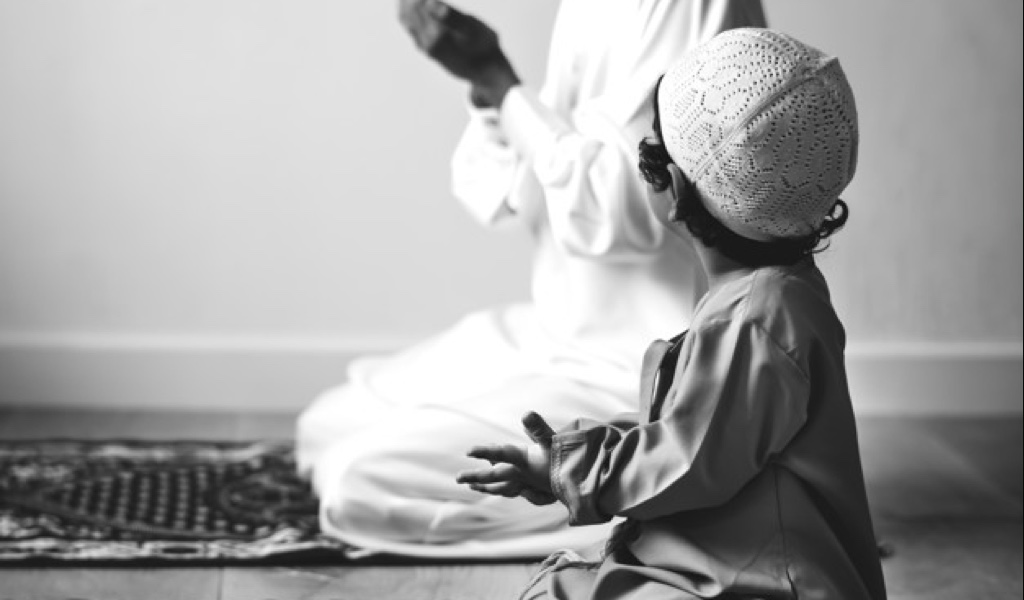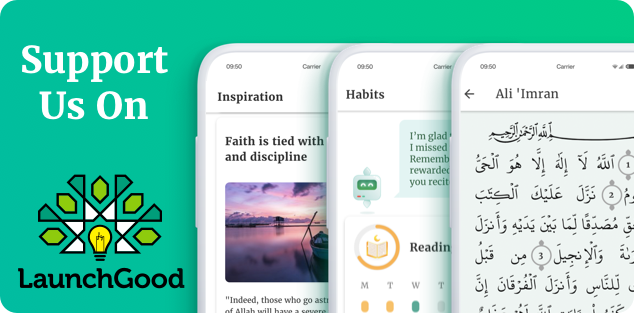** You’re being watched closely **
What you and I may have assumed went unnoticed was, not only registered by your children, but may have become engraved on their souls forever. It’s not just your words that nurture, but to a far greater extend, your actions.
Consider the righteousness of the young companion ‘Abdullah, the son of ‘Umar Ibnul Khattaab. The Prophet PBUH had praised him, saying:
إنَّ عبدَ اللهِ رجلٌ صالحٌ
“Abdullah is a righteous man.”
I have no doubt whatsoever that one of the primary cornerstones behind the righteousness of ʿAbdullah was the enormous influence of his father upon him.
How?
Consider just how many Prophetic narrations which spoke in praise of ʿUmar – his father – were narrated by ʿAbdullah himself.
– The narration wherein the Prophet PBUH saw in his dream that he was drinking milk and gave the rest to ʿUmar was narrated by ʿUmar’s son, ʿAbdullah.
– The narration wherein the Prophet PBUH saw in his dream that ʿUmar was pulling out buckets of water from the pool with great power was narrated by ʿUmar’s son, ʿAbdullah.
– The narration wherein the Prophet PBUH called upon Allah to guide the one whom He loves the most from Abu Jahl and ʿUmar was narrated by ʿUmar’s son, ʿAbdullah.
– The narration which spoke of how ‘Umar’s opinions were frequently approved of by Allah Himself via Qur’an was narrated by ʿUmar’s son, ʿAbdullah.
‘Abdullah *saw* his father behaving exceptionally as a Muslim. He saw a dad who’s commitment to Islam was both public and private, during travel and residence, and during times of ease and difficulty, and so naturally, the righteous man – ‘Abdullah – was born.
Sending your child to the local Shaikh is rarely sufficient on its own. We can’t do anything about our children’s lives till we do something about ours, till they see in *us* parents of repentance, dedication and worship.
When Maalik Ibnu Deenar saw a man who was praying carelessly, he said:
مَا ارْحَمْنِي بِعِيَالِهِ
“I feel so much pity for his children.”
It was said to him: “He is messing up his own prayer, so why do you feel pity for his children?”
He replied, إِنَّهُ كَبِيرُهُمْ وَمِنْهُ يَتَعَلَّمُونَ
“He is their elder and they will learn from him.”
This month, realise that your children are observing you;
– Your energetic or lethargic approach to Ramadan
– Your overeating during meal time or self-control
– Your cigarettes post-fasting or permanent restraint
– Your lifelong commitment to the five daily prayers or seasonal interest in Taraweeh, and most importantly,
– They’re comparing your behaviour during Ramadan to how it shall be after Ramadan.
Subscribe for Updates
Original content used with permission from:






